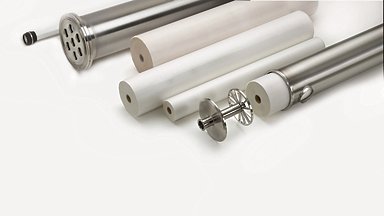Supporting cheese production
A variety of filtration technologies can be used with advantage in cheese production. Standardising total protein content in yellow cheeses is one of the major filtration applications as it evens out seasonal variations in milk protein content, stabilising the cheesemaking process. Bacteria and spore removal is another application which enhance cheese quality. Filtration also plays an important role in clarifying cheese brine, which is commonly used in cheese production for product preservation and texture control and to enhance flavour and optimise rind formation.
Uses

White cheese
High yield, uniform quality

Cream cheese
Optimal product structure

BrineClearTM
Cheese brine clarification

Protein standardisation of cheese milk
Lower costs, higher yield

Bacteria and spore removal in cheese
Ensuring high product quality
Technologies

Standardising casein content
Microfiltration

Total protein separation
Ultrafiltration
Ultrafiltration - a proven technology for white cheese production
The ultrafiltration (UF) method for white cheese production was introduced in the early 1970s and has been widely used ever since. Membrane filtration is an established and proven technology for nearly any dairy process, and Tetra Pak Filtration Solutions has supplied and installed more than 30 UF plants for white cheese production around the world. The UF process offers a number of advantages.










